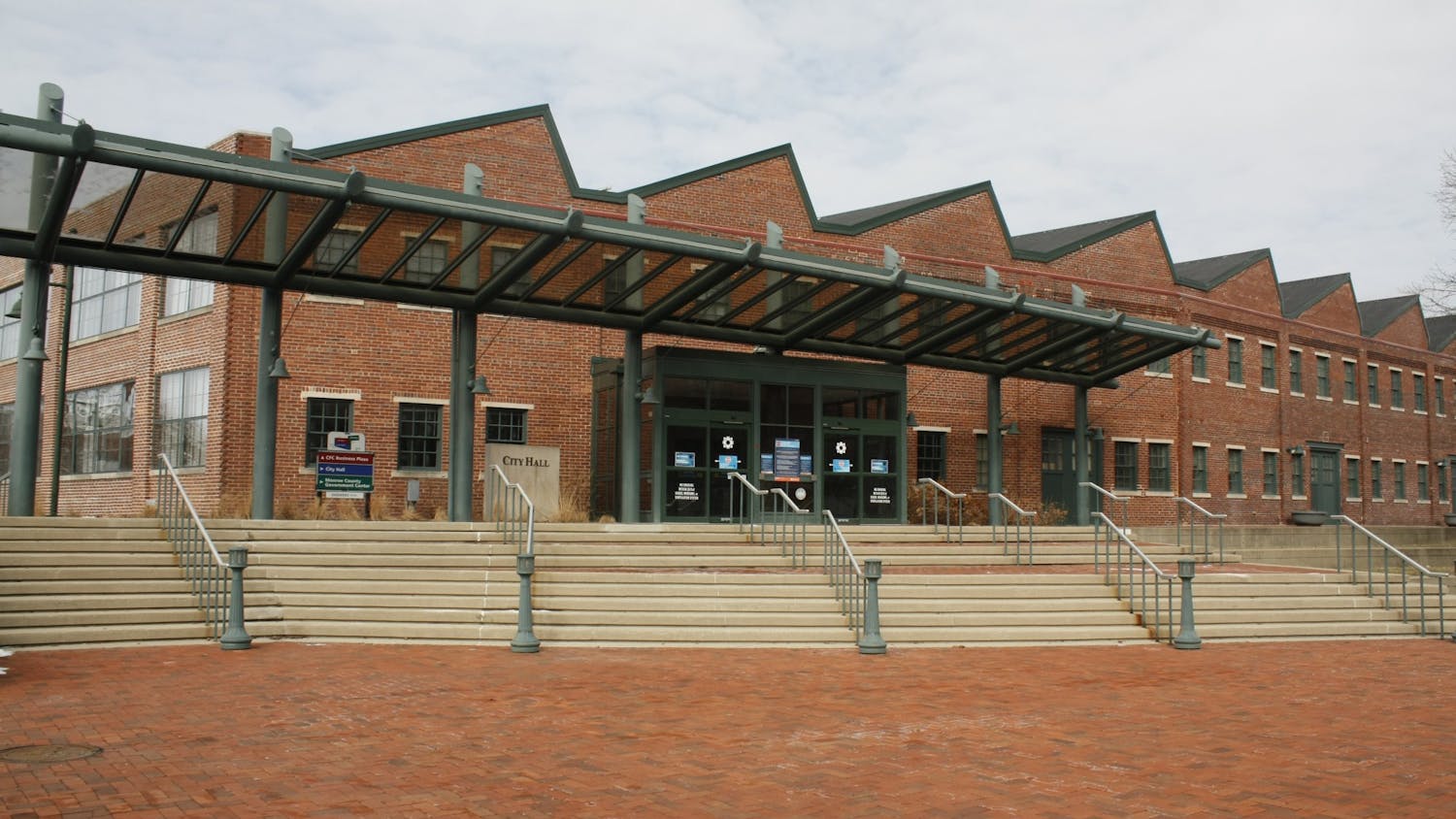Encumbered by financial troubles, the state has deferred a monthly payment of $35 million to IU -- a sizeable chunk of its state operating appropriation of $436 million this year. The State Budget Agency will withhold the December payment until July 2003, when the next biannual budget period starts.\n"It's more or less an accounting trick," said state Sen. Vi Simpson, D-Ellettsville, who chairs the bipartisan State Budget Committee. "It's not uncommon, but there's cause for concern if the economy doesn't pick up."\nThe University is scaling back on administrative overhead to deal with the revenue loss, IU President Myles Brand said.\n"We can manage it at this level with no cutbacks in academics," he said. "But it reduces our flexibility. It's always difficult to live with less money."\nThe state has suffered from the slowing national economy. Sales and income tax revenues have declined sharply. \nThe Indiana General Assembly approved a $21 billion, two-year deficit budget in the spring. State Budget Agency Director Betty Cockrum said the budget spends about $500 million more than the state is expected to take in during the next two years. An $83 million July revenue shortfall has only worsened the situation. \nTuesday, Gov. Frank O'Bannon announced a $41 million shortfall during the month of August. Only two months into the fiscal year, Indiana is already $124 million short of projections.\nThe budget relies heavily on lottery and gambling revenues, which lawmakers usually shun as steady sources of revenue. It also taps deeply into the state's Medicaid reserve fund and Rainy Day Fund, which is supposed to be reserved for a recession. \nO'Bannon let the budget pass into law without his signature. By 2002, it's projected to almost entirely exhaust the state's surplus, which stood at $2 billion only a few years ago. \nBrand said University officials are already reviewing consulting contracts and consolidating purchases of supplies across branch campuses. The IU board of trustees is slated to approve proposed cost-cutting measures Friday at its meeting in Bloomington. \n"We're going to watch our expenditures closely," Brand said. "We'll save money to make up for any losses. We don't want this to affect the academic side of the University."\nAfter the University received only a modest increase in funding from the General Assembly this spring, the trustees approved a 7.5 percent tuition hike. The trustees cited a need to keep faculty salaries competitve. They are among the lowest in the Big Ten.\nWhile Brand said he understands the problems facing lawmakers, he fears the worst.\n"We're thankful that the state has been a partner with us," he said. "This is not unique, but the decline of investment of basic manufacturing in this state has really turned down the economy. We can only hope that the budget situation improves."\nTuesday, O'Bannon said the state's financial situation should make either a tax hike or spending cuts necessary. But Cockrum said the governor won't tap into education spending, which is 60 percent of the state's total budget, unless it's absolutely necessary.\nStill, deferring funding in the short-term is fair game. And if the economy doesn't pick up, Simpson said the University might never see the deferred payment.\n"I think it's disingenuous in such a fiscal situation to put the risk and burden on the recipients of the funding," she said. "But the fiscal outlook is very serious."\nIU Director of State Relations Don Weaver, who lobbied the legislature this spring, said he thinks the state might look to cuts in higher education financing to straighten out its budget. He said it's an easier target than K-12 education, which affects more constituents.\n"There's no way they could get enough money from higher education without shutting us down completely," he said. \nSimpson said she expects lawmakers to consider dockside gambling and a cigarette tax hike more strongly as alternate sources of revenue in the upcoming session. They killed both measures during the spring's budget session.\n"This is a real crisis," she said. "And no one would support a general tax increase for political considerations"
State's financial situation troubling for IU
Budget crisis forces agency to withhold $35 million from IU
Get stories like this in your inbox
Subscribe





